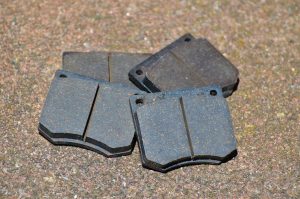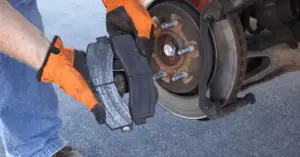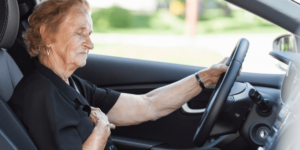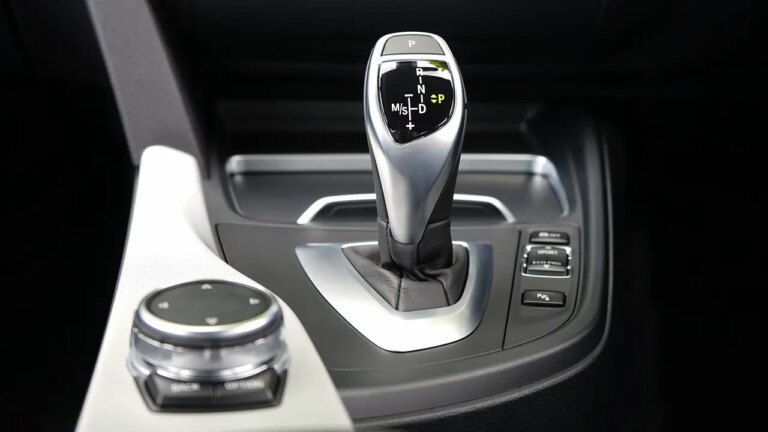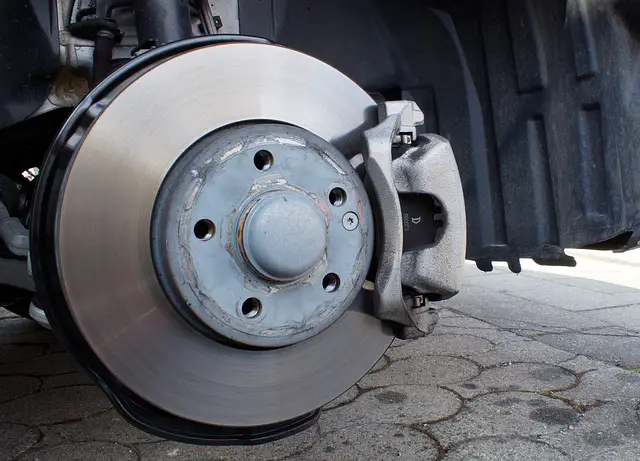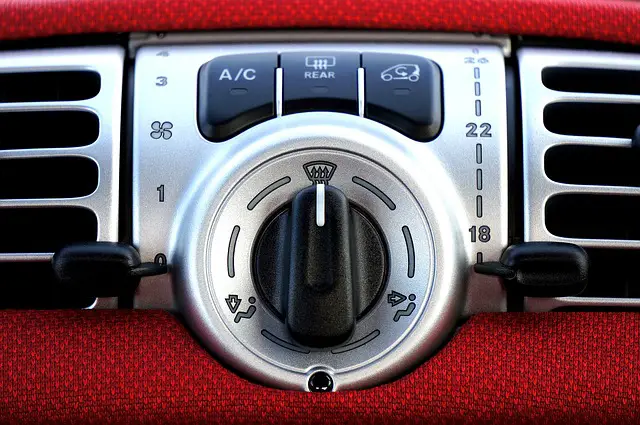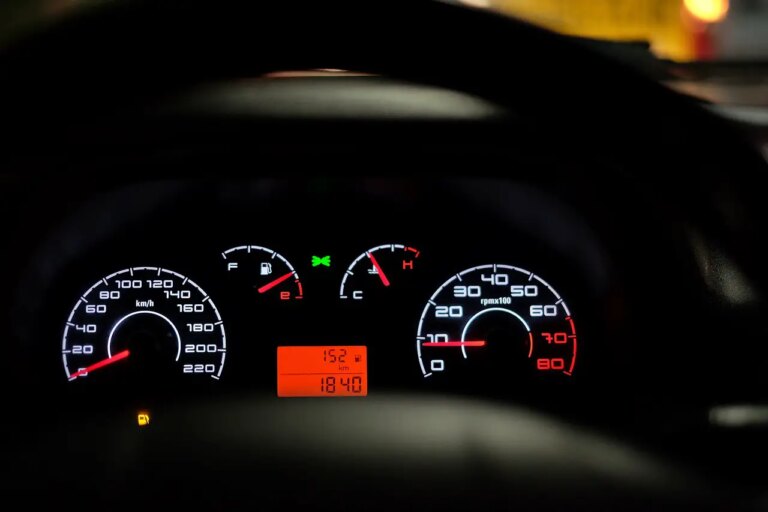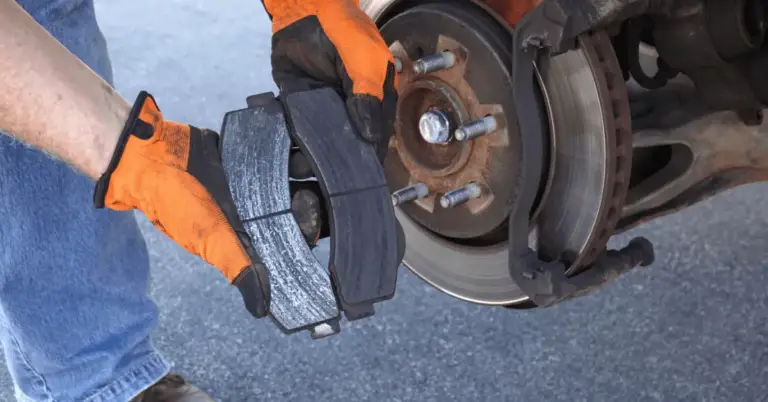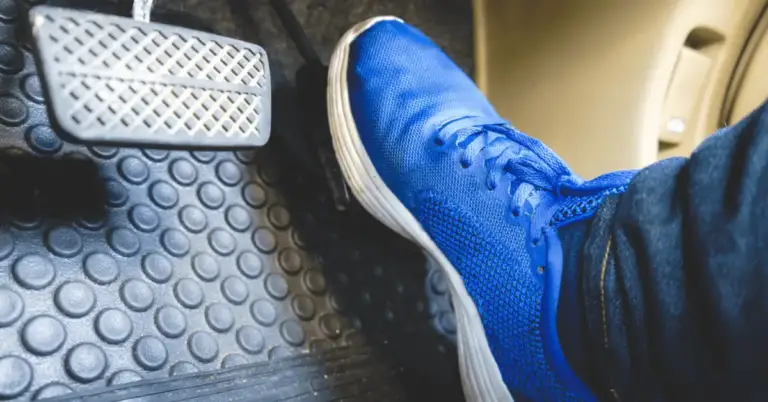So you’ve just spent your hard-earned cash on getting new brakes, but now you’re hearing noises coming from your wheels that weren’t there before.
It can be very frustrating but rest assured, it’s also normal for new brakes to squeak.

In this brief guide, we’ll explain what can cause your new brakes to squeal and whether – depending on the cause- you should go back to the fitter to get it rectified.
Briefly though.
The three common reasons new brakes squeak are moisture on the rotors, your new ceramic pads are noisier than the standard pads you had fitted before, or they need breaking in. All these sounds should not concern you.
So we’ll start with the three most common reasons and then move on to more rare causes.
The 8 Reasons Your New Brakes Are Squealing
1. Moisture on The Rotors
If you’ve had your brake rotors changed at the same time as your pads, you can get moisture on them.
It may seem strange that this has only happened once you have new brakes, but what happened is that something that was operating tightly before has now been adjusted with two brand-new parts fitted on each wheel.

A small amount of moisture can get between the pad and rotor and cause a squeal. The good news is that it soon settles down, and once the rotors warm up, the condensation or moisture on the rotors should evaporate.
2. Ceramic Pads Fitted
Ceramic pads may last longer but can squeak too. The noise is caused by small friction from them interacting with your metal rotors.
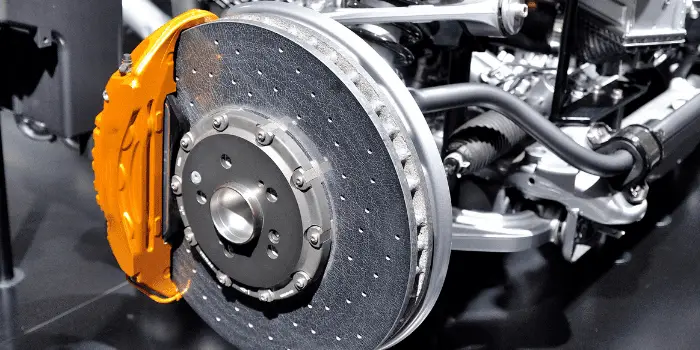
Metal pads can also squeal too, but ceramic pads are more likely. Overall ceramic pads are a better choice as they are long-lasting and create better-stopping power. The noise can be very irritating, though.
3. Breaking In
Not very technical, I know, but often brakes need a few hundred miles to bed in correctly.
They can be pretty noisy during this time, but the more you use them, the more the noise should start to ease.
Bedding in brakes was more common in the past, but it is a great way to stop squeaking.
Of course, always ensure you’re driving safely and not erratically, within the law and speed limits. If in doubt, don’t do this unless you are completely happy. We take no responsibility.
Here is a video that goes into the process in more detail if you want to.
The brakes should be bedded in at the end of this, and the squealing noise gone.
4. Debris or Dust On The Brake Rotors
Although it’s an easy job to fit new brakes, it can get a bit messy and dusty.
Brake pads lose a little material each time they are called to slow your car down.
Some of the dust created won’t disperse in the atmosphere and instead ended up on the rotors.
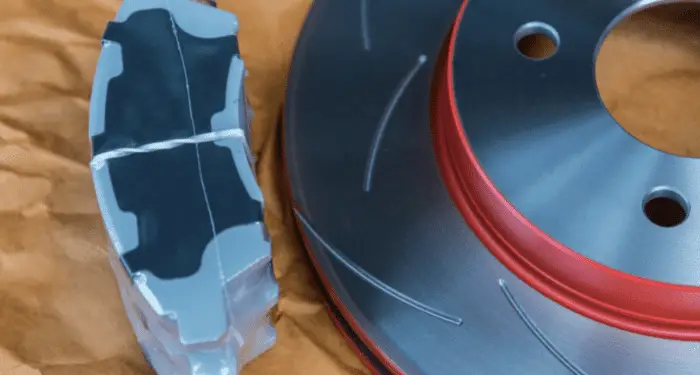
Small pockets of dust can build up around the caliper and lips on the brake rotors. This is quite normal.
These dust pockets can get on the new brake rotors or pads if they aren’t removed thoroughly during the rotor swap.
This really shouldn’t happen if the mechanic cleaned away the dust thoroughly. Luckily, it should right itself, and the dust blows away after a few miles.
One thing to consider is that even new rotors can get a very small layer of rust on them if they are left for a few days in damp conditions. This can create a squeak – normally only for a couple of brakes – before settling down again.
5. Worn Rotors
This can be discounted if your rotors are replaced along with your pads.
This is a common reason for squealing sounds coming from your brakes.
However, realistically, even if your brake pads have been changed recently but not your rotors, it is unlikely that the rotors are to blame.
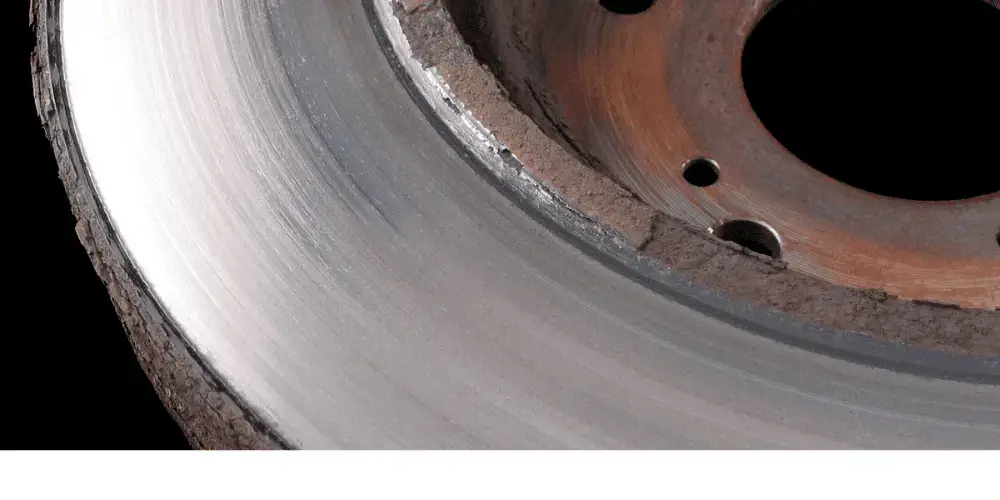
The reason is that even if you didn’t ask for your rotors to be changed, the mechanic would see whether they were bad when they changed your pad. It’s inevitable as the pads are next to the rotors.
The mechanic would tell you. If you’re involved in an accident after a brake service, and the rotors weren’t checked, you could sue the mechanic for letting you drive off with unsafe brakes.
Also, a mechanic will make more money if you have brake rotors changed simultaneously as they can charge a markup on the rotors and more labor fees. It’s business.
For this reason, the squealing noise is unlikely because of worn rotors. Not impossible, though.
6. Brake Guards or Dust Covers
Are You Hearing More of a Grinding Noise Instead?
These parts are not that well known but do an important job. They keep mud and dust out of your rotors and pads but are easy to knock or bend when fitting new brakes.
All it would take is them to be slightly touching the rotor to cause a squeaking noise.
It’s unlikely, though, as the sound would more likely be a grinding noise.
7. New Rotors Fitted Incorrectly
It’s not impossible to fit rotors around the wrong way, but it is pretty rare.
It would be an elementary mistake for a mechanic, and the wheel may not even go back on the car when the rotor is on wrong.
What’s more likely is that the screws have been tightened incorrectly. This can cause noise.
However, unless you’re getting a lot of wheel shake when braking, this is not a likely cause.
8. New Pads Fitted Incorrectly
Once again, this would be very difficult to do and would be a very rookie mechanic mistake to make.
Most brake pads won’t clip in place if they are on backward—an improbable reason.
In Summary
The three most likely causes of your new brakes squealing are; first, there is moisture on the rotors. Secondly, you’ve had ceramic pads fitted and not replaced the rotors. Finally, the brakes need time to bed in.
The other five reasons mentioned are rarities and not worth considering until you can discount the first three.
If the problem persists after 100 miles, it’s advisable to call the mechanic who fitted them and ask their advice.
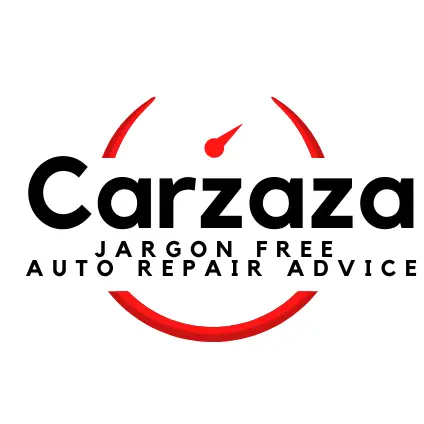

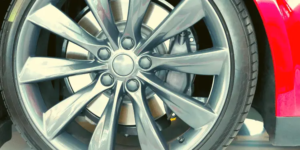
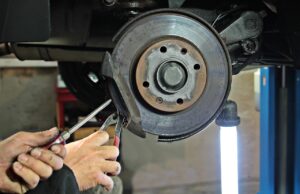
![Can Dirty Brake Fluid Cause Squeaky Brakes? [ANSWERED] DOT-3-Brake-Fluid](https://carzaza.com/wp-content/uploads/2023/12/DOT-3-Brake-Fluid-300x161.png)
